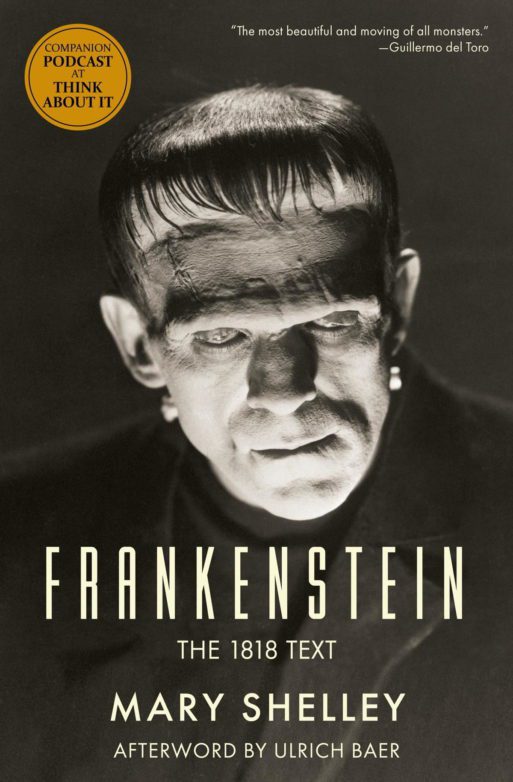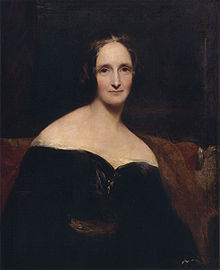 Upon my rereading of Frankenstein by Mary Shelley, not so pleasant memories of cramming in-depth analyses of and composing essays in preparation for the AP English exam eight years ago came flooding back to me. As someone who would describe herself as an absolute bibliophile who always carries at least one book with her wherever she goes, I’ve always struggled with British literature, particularly books from the late 18th and early 19th century Gothic style. Add in some old-fashioned and very formal English and you will be lucky if you do not catch me snoring or daydreaming. This second reading, perhaps because I have aged some and the roller coaster of my life has endured many rises and drops, led to a slight increase in appreciation for the beautiful themes of death and unbearable and unacknowledged grief that Mary Shelley develops and contemplates throughout Frankenstein.
Upon my rereading of Frankenstein by Mary Shelley, not so pleasant memories of cramming in-depth analyses of and composing essays in preparation for the AP English exam eight years ago came flooding back to me. As someone who would describe herself as an absolute bibliophile who always carries at least one book with her wherever she goes, I’ve always struggled with British literature, particularly books from the late 18th and early 19th century Gothic style. Add in some old-fashioned and very formal English and you will be lucky if you do not catch me snoring or daydreaming. This second reading, perhaps because I have aged some and the roller coaster of my life has endured many rises and drops, led to a slight increase in appreciation for the beautiful themes of death and unbearable and unacknowledged grief that Mary Shelley develops and contemplates throughout Frankenstein.
Death and unbearable grief permeates Frankenstein from the beginning with unacknowledged grief appearing not much later. The story commences through the letters a ship captain named Robert Walton writes to his sister that lead up to his first encounter with Victor Frankenstein. Walton acts as a conduit for the audience so that Victor Frankenstein to tell his story filled with early triumphs and happiness followed by crushing misfortunes and grief. Walton himself mirrors many of Victor’s attributes with an insatiable thirst for knowledge and a lingering grief, which in his case happens to be his deep desire to have one true friend in whom he can confide and share everything happening in his life.
Frankenstein transitions into a first person account of Victor’s life story, chronicling everything from the good times to the major life event that turned his life into a future filled with succeeding bouts of earth-shattering grief and misfortune. His constant search for unattained knowledge that might allow him to be a maker of his own breed of humans instead leads to his creation of a monster he finds so grotesquely unattractive towards whom he cannot feel any love and promptly flees to avoid proving his disgust to the creature. This spawns the beginning of Victor’s grief, especially since the monster realizes that his creator does not love him and that his ugliness prevents him from forming any loving and fulfilling bonds since everyone who encounters him judges him by his appearance rather than his qualities. Thus, the monster experiences a quite severe case of unacknowledged grief through his inability to find love and acceptance as well as the betrayal of his very nature by his performance of the vengeful act of multiple murders that forces him to a life of loneliness and isolation.
Truth be told, the combined woeful tales of Robert Walton, Victor Frankenstein and Frankenstein’s creature provide a balanced variety of showing the myriad ways people deal with different types of grief. Although I gained some newfound appreciation of the depth of insights into death as well as into the unacknowledged grief covered within it, this book still did not earn a fan in me.
More SevenPonds reviews:

 ”Frankenstein” by Mary Shelley
”Frankenstein” by Mary Shelley



 First the Wealth Gap, Now the U.S. Has a Growing Health Gap
First the Wealth Gap, Now the U.S. Has a Growing Health Gap
 How to Comfort A Dying Loved One
How to Comfort A Dying Loved One
 Our Annual Seven Holiday Gifts for Someone Who Is Grieving, 2024 Edition
Our Annual Seven Holiday Gifts for Someone Who Is Grieving, 2024 Edition














